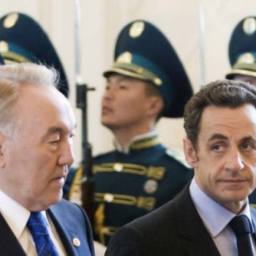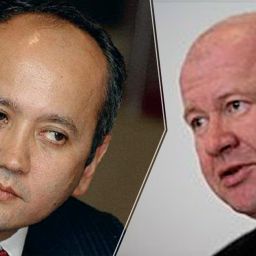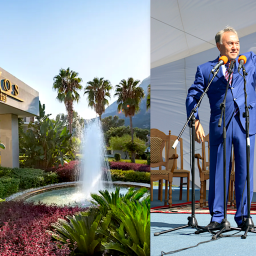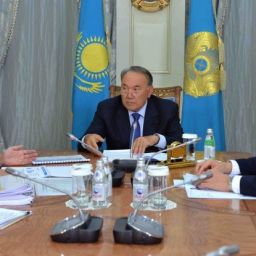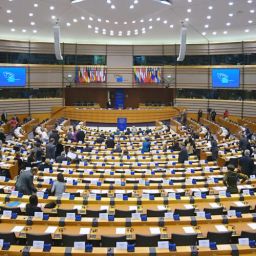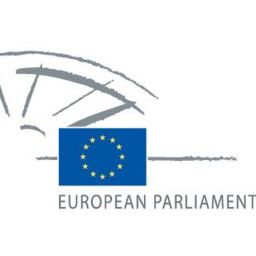Google translated
Moldovan investors Stati discovered in Washington a building that Kazakhstan bought for its ambassador to the United States, but after a while it suddenly found itself in … private hands. How?

To begin with, Moldovan investors Anatoly and Gabriel Stati, who have been in litigation with Akorda for many years, intend to file a new lawsuit against the Kazakh authorities. This is stated in a press release sent by representatives of Stati to the editorial office of KZ.media .
The reason for the claim (we quote in the text ) was “gross violations by the Republic of Kazakhstan of its international legal obligations to pay for the final and binding arbitral award rendered in favor of the Parties to the Statute in December 2013”.
Recall that we are talking about the decision to collect from Kazakhstan in favor of Moldovan investors Stati more than 550 million US dollars (as compensation for damage, legal costs and interest). The Kazakh authorities do not want to comply with this decision, as a result of which the country was dragged into a legal war on a global scale (read the materials about it here ).
In this war, Stati’s lawyers are solving a very specific problem – they are looking for the property of Kazakhstan for his arrest. But representatives of Akorda, on the one hand, are trying to prove that Stati are not investors, but fraudsters who fraudulently built a gas processing plant in the country, as a result of which the authorities were simply forced to confiscate it. On the other hand, they are taking measures to hide the property abroad that can be seized.
In most cases, states voluntarily enforce arbitral awards. Enforcement is possible through the 1958 New York Convention, which provides for mandatory recognition and enforcement of arbitral awards in more than 160 countries around the world. In this case, there is a compulsory collection of state property. But only on condition that this property belongs to the state at the same time, but at the same time is used for commercial purposes.
These can be shares / shares owned by the state in companies, commercial accounts, payments from third parties in business transactions for the sale of goods, etc. What’s important: the property of embassies, consulates, armies and funds used for public purposes are protected by sovereign immunity and are not subject to enforcement.
How can state property be hidden? The simplest protection mechanism in such situations is the transfer of state assets to private hands. And the Stati believe that Kazakhstan is doing just that.
In the press release mentioned above, they remind that “the courts of Belgium and the Netherlands recently ruled that RK tried to hide its property from legal enforcement measures through fictitious transactions.” And according to Anatoly Stati, president and owner of Ascom Group, the Ministry of Justice of Kazakhstan “implements a global strategy for conducting unfair litigation and concealing property for the purpose of evading the fulfillment of its international legal obligations.”
The announced intentions of Stati mean that their conflict with the Ministry of Justice of the Republic of Kazakhstan is reaching a new level of escalation. As a result, the citizens of Kazakhstan can learn a lot of new things about how the state assets of the country are used and who owns the country abroad. Especially if they hide by the “nominal sale” method to their private individuals. It is well known that in the 90s such “formal” transactions led to a very real privatization of state property.
So far, we have become aware of one episode that Stati’s lawyers have identified in the United States – in Washington.
On July 19, 2021, the Stati applied to the federal district court of Washington (DC) with a motion for the imposition of urgent interim measures and the seizure of real estate owned by the Republic of Kazakhstan by right of ownership in the territory of Washington.
This is a building that is part of the diplomatic mission of Kazakhstan in the United States. In accordance with international agreements, such real estate has a sovereign status and, accordingly, cannot be alienated by lawsuits. Nevertheless, the Stati considered it possible to file such a demand in an American court, since they believe that the building, which was the diplomatic property of Kazakhstan, is already being effectively used for … personal interests.
AND THIS FACT IS INTERESTING IN ITSELF, AND NOT ONLY IN THE CONTEXT OF STATI’S LEGAL DISPUTES WITH THE REPUBLIC OF KAZAKHSTAN.
To better understand how Kazakhstani property in Washington ended up in private hands, we restored the chronology of events, using the materials of the civil action filed against the Republic of Kazakhstan Civil Action No. 14-cv-1638 (ABJ) in the United States District Court for the District of Columbia.
According to the text of the statement of claim, the property history of diplomatic relations between Kazakhstan and the United States began in June 1998, when the Government of Kazakhstan, with the permission of the US State Department, bought for its needs three real estate objects in Washington, located at 1529 O Street, NW; 1401 16th Street, NW and 1407 16th Street, NW.
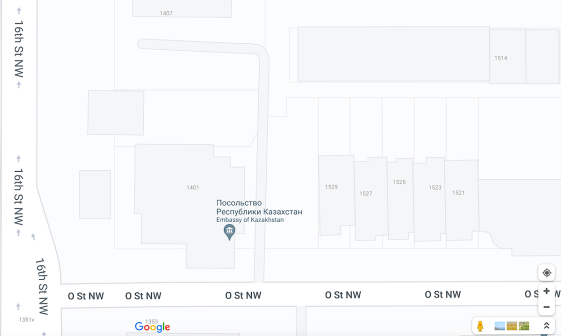
The total purchase price, which occurred in a single transaction, was US $ 5 million.
The building, located at 1401 16th Street, was set aside for the administrative functions of the Embassy of the Republic of Kazakhstan in the United States.
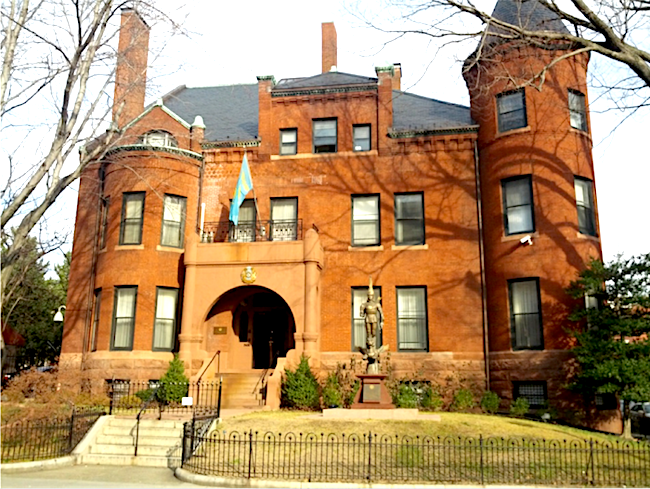
Parking has been set up at 1407 16th Street, NW.
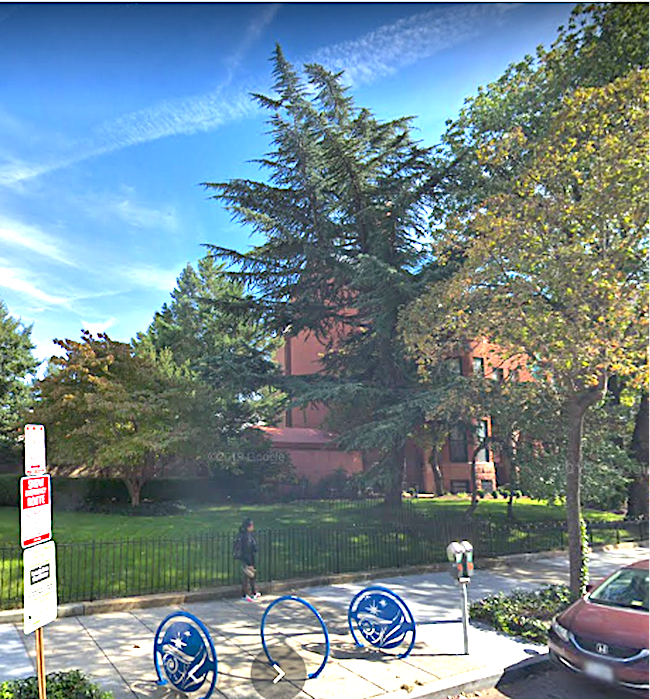
Much more “interesting” was the address 1529 O Street – there is a two-story mansion built in 1890. It has nine rooms, divided into two parts (units).
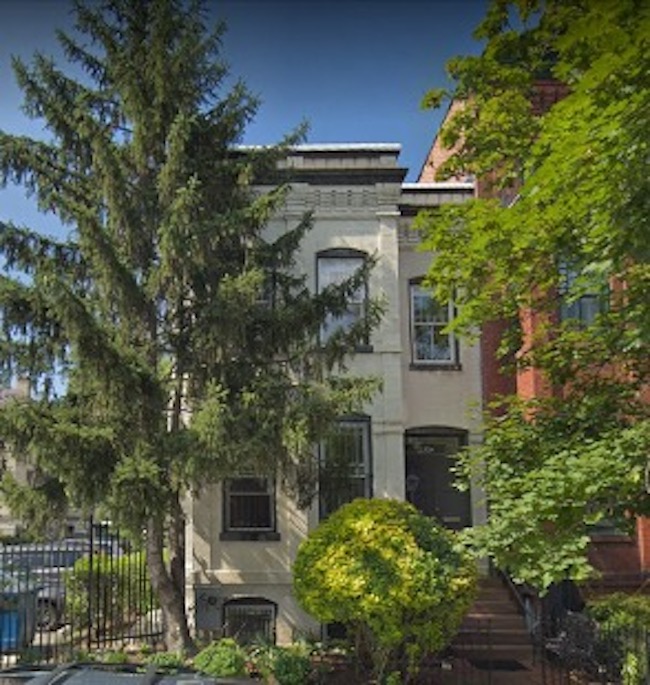
The historic mansion became the residence of the Ambassador of Kazakhstan to the United States. And for nearly a quarter of a century, he regularly performed this function.
Everything changed in January 2013, when the Government of Kazakhstan decided to purchase for its ambassador a larger and more luxurious residence located in the Washington suburb of Woodland Normanstone. Apparently, they thought that the diplomatic mission does not tolerate the hustle and bustle and lights of the big city. Moreover, the diplomatic mission in Washington turned out to be a vulnerable target for expressing public protests against the Kazakh authorities.
This time the price turned out to be significantly higher. The ambassador’s suburban mansion, located at 2910 Edgevale Terrace, NW, cost nearly $ 5.5 million.

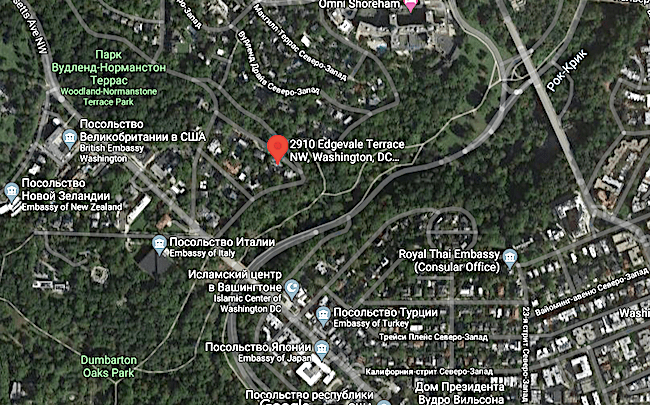
The ambassador moved to a new residence, but the old one remained in the ownership of Kazakhstan. True, now it has become known in official documents as the “Residential building of the Embassy”. This is the wording that Stati’s lawyers found in the documents they received in response to a demand to provide them with a list of properties owned by the Kazakh government in the United States. It meant that the building had a diplomatic status, and, therefore, the legal protection of the mansion from civil lawsuits against Kazakhstan.
But this answer did not satisfy Stati’s lawyers. According to them, the mansion on O Street performed functions that were very far from diplomatic. And to be sure of this, it doesn’t even make sense to hire expensive detectives. It is enough to type the address 1529 o street, nw dc in the search bar of a google search engine or open a google map.
The first issue will be the phrase “Russian With Natalia” – the name itself hints at a relationship far from diplomacy.
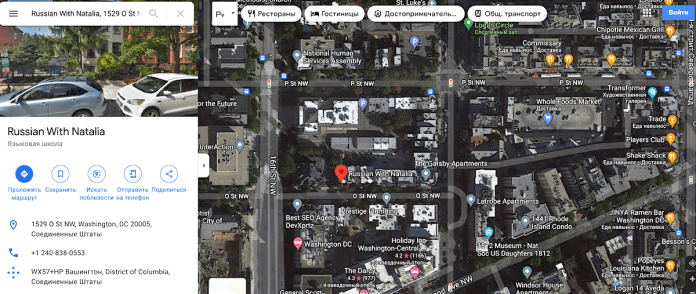
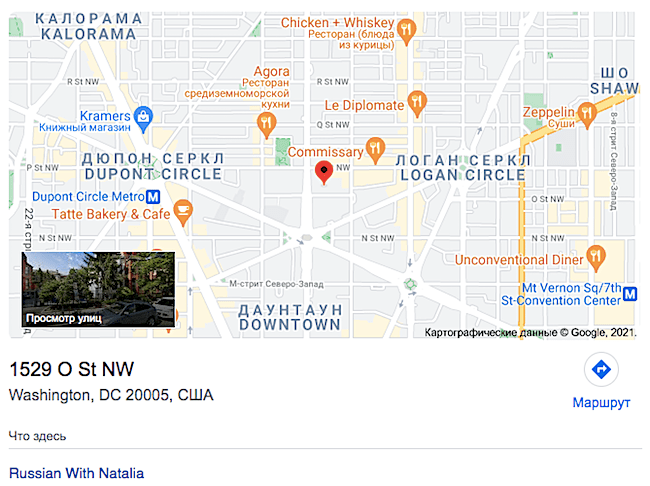
In fact, we are talking about learning Russian with Natalia. In a 19th century mansion under diplomatic cover.
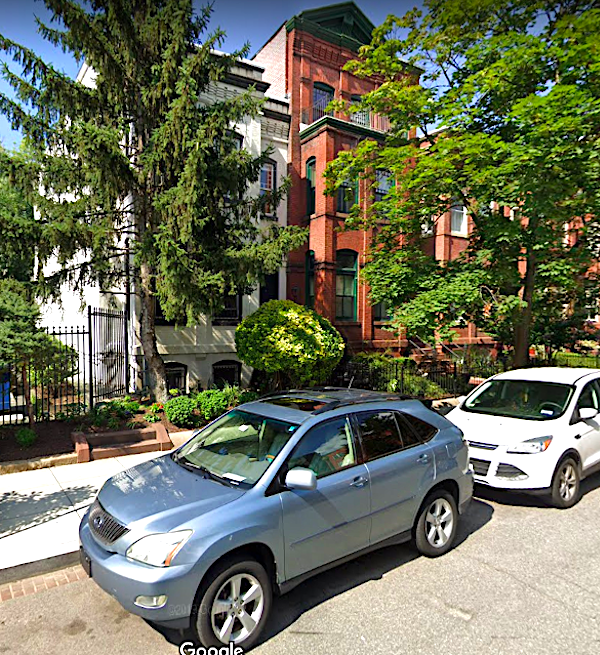
According to the data presented to the court by Stati’s lawyers, a company called Russian With Natalia was established in 2017 and is indeed located in the former mansion of the Ambassador of Kazakhstan to the United States.
In fact, it is a linguistic school with a turnover of 371 thousand dollars a year. True, this company is not run by Natalya at all, but by a man named Sergei – Sergei Tsoi.
According to Stati’s lawyers, Mr. Tsoi has nothing to do with Kazakhstani diplomacy, although he feels quite confident in the ambassador’s residence. So confident that (according to the data presented in the statement of claim) he placed there another own company – Modern Style Construction LLC, also known as MSC LLC-Kitchen Bathroom.
The firm itself was incorporated in the state of Maryland with the aim of refurbishing the bathrooms and kitchens of American citizens. But Tsoi started his business from the residence of the Ambassador of Kazakhstan.
How Mr. Tsoi managed to infiltrate diplomatic territory is not known for certain. Moreover, there is no data on Tsoi’s political and family ties in the political top.
On the company’s corporate website , Sergei Tsoi talks about how he got to the United States. His family of four emigrated there in 1999, with a total of $ 1,500.
The further history of Sergei Tsoi looks literally like an “American dream” – initially Tsoi’s parents worked for hire (his father was a painter, and his mother was in a restaurant). But in 2004, the family decided to create their own small business, which took from Tsoi (who at that time was still a young man) from 12 to 16 hours a day.
Judging by the fact that there are about 15 people in the corporate photo, the company has emerged from the stage of a family business and is quite successful. But how the success story of Tsoi’s companies turned out to be connected with the diplomatic property of Kazakhstan is completely incomprehensible.
Meanwhile, Sergei Tsoi’s successful business may turn out to be a fatal circumstance that could deprive Kazakhstan of a mansion, the cost of which, apparently, has long exceeded $ 10 million. Commercial activity, according to Stati’s lawyers, automatically deprives the state property of its diplomatic status.
But this is generally understandable not only for lawyers – either diplomacy or business. Although in the case of the Kazakh embassy, everything turned out to be mixed. And the main question here is – how could such a thing happen?
The first and most obvious assumption is that someone from the administrative staff of the diplomatic mission simply rented an idle room for rent, not really calculating the consequences of such actions. But not a fact.
Moreover, there is one more strange circumstance, which is contained in a footnote to the text of the claim. It mentions the testimony given by the employee of the Ministry of Finance of the Republic of Kazakhstan Kalymzhan Ibragimov to Stati’s lawyers.
On May 9, 2019, Ibragimov officially announced that only THREE real estate objects belong to the Republic of Kazakhstan in Washington. One is the actual embassy, and the other two are for the embassy staff. Where the fourth object from the general list of Kazakhstan’s diplomatic property in Washington “disappeared” remains behind the scenes.
Anyway, this was exactly the answer that Stati was very pleased with. Now the building, which houses the startups of Sergei Tsoi, can be withdrawn in favor of the affected investors.
But it will be very funny if Stati’s lawsuit exposes the fact of “grabbing” a mansion in the center of Washington by some enterprising Kazakhs operating under the protection of diplomatic status.

